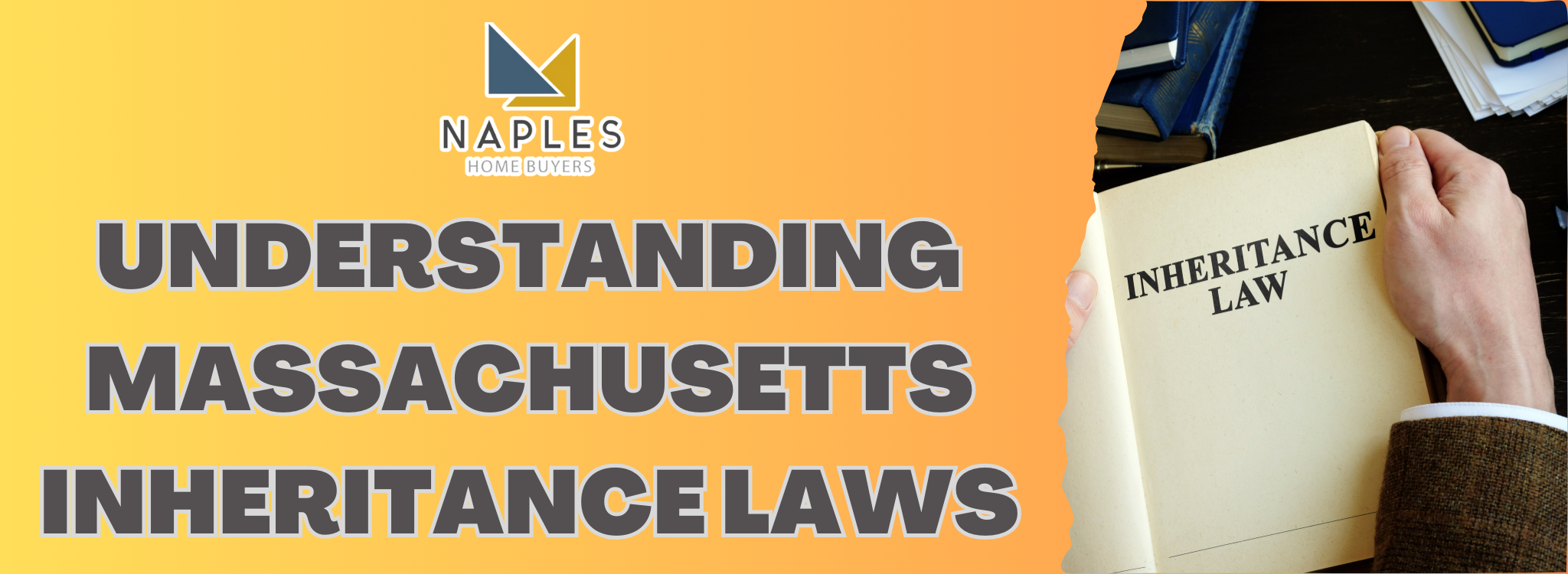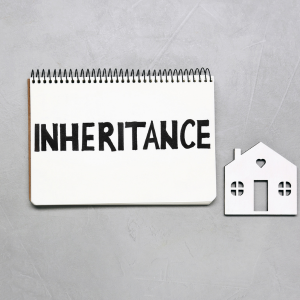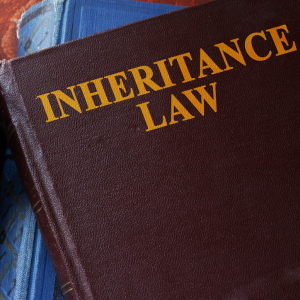
The Basics of Massachusetts Inheritance Laws
What Are the Key Components of Inheritance Laws?
Inheritance laws in Massachusetts tell us how a person’s things are shared after they pass away. Here’s what you need to know:
- Wills: A will is a document that says who gets what. It ensures that your wishes come true and makes probate easier.
- Estate Planning means preparing your money and assets for the future. Good planning can lower taxes and legal costs.
- Legal Inheritance in Massachusetts: These rules decide who gets what if there’s no proper will.
Knowing these parts, you can better prepare for handling your estate in Massachusetts.
How Does the Massachusetts Probate System Work?

The Massachusetts probate system manages what happens to someone’s things when they pass away. Here’s how it works:
- Probate Courts MA: Special courts help make sense of the will and handle distributing the estate.
- Executor Responsibilities MA: The executor manages the estate. They pay bills and share their assets by will and law.
- Probate Process: This is about checking the will, listing assets, paying debts, and giving out the rest to the heirs.
Knowing this process helps executors do their jobs right and make sure things are done by Massachusetts law.
What Is Intestate Succession and How Does It Affect Heirs?
Intestate succession is when someone dies without a will. Massachusetts decides who gets what. Here’s the scoop:
- Massachusetts Intestate Succession: If there’s no will, state law says who inherits first, usually the spouse and kids.
- Heirs: The law lists which family members can get part of the estate and how it’s divided. This can include spouses, children, and sometimes parents or siblings.
Knowing intestate succession helps heirs understand their rights and what they might receive if there’s no will.
For helpful advice on selling inherited property with multiple owners, consider consulting with professionals experienced in handling such transactions to ensure a smooth and equitable process for all parties involved. Reach out to experts like Naples Home Buyers. They can give you professional help for your situation.
Massachusetts Specific Probate Requirements
How Are Estates Settled According to Massachusetts Laws?
In Massachusetts, settling an estate is called probate. The executor has a big job in this process. They collect what the person who died owned, pay any debts, and give out what’s left based on the will or state rules if there’s no will.
The probate process follows specific timelines, so the executor needs to start quickly. First, they file a petition with the probate court to begin. Then, they manage the estate by listing assets, taking care of legal issues, and closing the estate after doing everything needed.
What Documents Are Essential in the Probate Process?

Handling the needed paperwork is very important in the probate process. Legal documentation starts with the will, if there is one, and continues with forms for the probate court.
Important documents include:
- Petition for Probate: Starts the process and picks the executor.
- Inventory of Assets: Lists what the estate owns, like homes, bank money, and belongings.
- Final Accounting: This shows how assets were given out and debts paid.
Having the right documents helps make sure the process goes smoothly and follows the law.
How Do Probates Differ for Small and Large Estates?
Probate can differ depending on the size and complexity of an estate. For small estates, Massachusetts has a simpler process that is easier and cheaper. This special method uses less paperwork and takes less time, helping families settle things quickly.
However, large estates require a more detailed probate process because they are more complex. This might mean checking values closely and handling more legal and financial matters. Executors must manage these tasks while following state laws to ensure proper execution.
By knowing these differences, executors can manage small and large estates well, following Massachusetts laws and caring for the beneficiaries’ interests.
Rights of Different Heirs Under Massachusetts Law
What Are the Rights of Spouses and Children?
In Massachusetts, spouses and children have certain rights when someone dies. A surviving spouse has the right to a part of the estate left by their partner. This is known as “surviving spouse rights” in MA. The exact share depends on whether there was a will.
Children, whether biological or adopted, also have inheritance rights. If there is a will, it usually says what each child gets. Without will, state laws decide how the estate is divided between the spouse and children.
How Are Stepchildren and Adopted Children Considered?

Stepchildren and adopted children can raise questions about inheritance. In Massachusetts, adopted children have the same rights as biological children. They can inherit from their adoptive parents, either through a will or if there isn’t one.
Stepchildren, on the other hand, don’t have automatic rights unless they are legally adopted. Stepchildren generally won’t inherit without adoption unless the will specifically includes them.
What Happens If There Are No Direct Heirs?
Massachusetts follows intestate succession rules if there are no direct heirs, such as a spouse or children. These rules decide who inherits when there’s no will and no immediate family. The estate might then go to distant relatives, such as siblings, nieces, nephews, or cousins.
Massachusetts manages the estate according to heirship laws if no relatives can be found. The state ensures the assets are handled properly so nothing is left unclaimed.
Legal Instruments and Tax Implications
What Are the Key Elements of a Valid Will in Massachusetts?
Making a valid will is important for planning your estate in Massachusetts. Here’s what you need to do:
- Testamentary Capacity: You must be at least 18 years old and understand what you own. You also need to know what happens when you pass away.
- Written Document: Your will must be written down. Verbal or digital will not count in Massachusetts.
- Signature and Witness Requirements: Sign your will before two other people. These witnesses must also sign it, proving you agreed to the will.
- Legal Execution: State that you’re signing the will on your own. Working with a lawyer to ensure everything is done right is a good idea.
Knowing these steps helps keep your last will and testament safe during probate. You’ll feel better knowing your estate will be handled as you want.
How Does the State Handle Estate and Inheritance Taxes?

Understanding taxes is key when planning your estate in Massachusetts. Here’s what to know:
- Estate Taxes: If your estate is over $1 million, Massachusetts will tax it. The rate changes based on how much your estate is worth.
- Tax Obligations: The person managing your estate must fill out forms and pay any taxes within nine months after you pass away.
- Exemptions and Deductions: Some costs, like debts or funeral expenses, can reduce how much tax is due.
- Inheritance Tax Laws: Massachusetts doesn’t have an inheritance tax, but if the estate is large, check federal rules.
These points show why knowing your tax duties is helpful when getting your estate plan ready in Massachusetts.
Can Trusts Help Minimize Tax Liabilities?
Trusts can lower tax bills and help manage your estate in Massachusetts. Here’s how they work:
- Revocable Living Trusts let you control your assets and change them if needed. They keep your affairs private and avoid probate ,but don’t directly cut taxes.
- Irrevocable Trusts: Putting things in these trusts can lower the taxes on your estate since they’re not part of your estate anymore.
- Trust Options: Some trusts, like those giving to charity, help with taxes and allow you to donate.
- Trust Administration: It’s crucial to run trusts well. Massachusetts experts can help ensure you’re following the rules and saving taxes.
Using trusts in your plans helps save on taxes and ensures your assets go where you want.
Addressing Common Challenges in Estate Planning
What Are Common Mistakes to Avoid in Estate Planning?
When you’re not around, estate planning helps you decide who gets your things. Here are some mistakes people make:
- Not Having Wills and Trusts: Your family might argue about who gets what if you don’t have a will or a revocable living trust. Make sure your documents say what you want.
- Ignoring Probate Law: Every state has different rules. Knowing these rules can save trouble in Massachusetts. Your plans should match local laws.
- Missing Estate Taxes in Massachusetts: These taxes can take much of what you leave behind. Plan smartly so taxes don’t take too much.
- Choosing the Wrong Executor: Pick someone you trust to handle everything in Massachusetts. List out their jobs clearly to avoid problems later.
How Can You Resolve Disputes Among Heirs?

Heirs might argue over what you leave them. Here’s how to keep the peace:
- Mediation: This is like a meeting where everyone talks and tries to agree without going to court.
- Legal Solutions: If talking doesn’t work, probate litigation in Massachusetts might be needed.
- Learn the Massachusetts Probate Process: Knowing the steps can lower stress and stop fights.
- Clear Wills and Papers: Good, clear documents help stop arguments before they start.
Who Can You Turn to for Expert Guidance?
You might need help with estate planning in Massachusetts. Here’s who can assist you:
- Probate Attorneys in Massachusetts: They know much about fiduciary duties and can ensure your plan is safe and solid.
- Law Library Resources: Libraries have information to help you learn about laws and planning.
- Other Legal Support: Some places offer low-cost or free legal help, which can be very useful.
FAQs:
What are Massachusetts wealth transfer laws?
Massachusetts wealth transfer laws explain how to give your money and belongings to others. These rules cover wills, trusts, and gifts to ensure compliance.
How does intestate succession work in Massachusetts?
If someone dies without a will in Massachusetts, intestate succession laws decide who gets their things. Usually, the state gives the belongings to the closest family members, like spouses or children.
Can you explain probate fees and timelines in Massachusetts?
Probate fees in Massachusetts depend on the estate’s worth. The process can last from a few months to over a year, especially if there are any disagreements.
What is the role of healthcare proxies in estate planning?
A healthcare proxy is when you choose someone to make medical decisions for you if you’re too sick to decide. It’s an integral part of planning for the future.
Are joint tenancy laws in Massachusetts necessary for estate planning?
Yes, joint tenancy laws affect how properties are shared after one owner dies. It can help avoid the probate process for shared properties.
How do Massachusetts community property laws affect inheritance?
Massachusetts doesn’t have community property laws, so when married people split up or pass away, their things aren’t automatically divided in half. Knowing this helps with estate planning.
What is the significance of beneficiary designations in Massachusetts?
Beneficiary designations are critical because they say who gets life insurance when someone dies. It’s important to keep them updated so your things go to the right people.
How is a special needs trust beneficial in Massachusetts?
A special needs trust helps care for people with disabilities without stopping their government assistance. This ensures that they receive long-term support and care.
Key Insights
- Learn about Massachusetts inheritance laws for better estate planning. Our Massachusetts legal guide helps you understand succession laws and intestacy, especially if there are no descendants or you are unmarried.
- Find simple advice on the Massachusetts probate timeline and fees. We help with the estate inventory, the estate closure process, and what to do if you need to contest a will in MA.
- Understand how to protect your home with homestead protection in MA. Learn about Massachusetts fiduciary duties to keep your assets safe.
- Get information on probate litigation in MA and joint tenancy laws. We explain how asset distribution works, including beneficiary designations and life insurance claims in Massachusetts.
- With our help, follow the Massachusetts General Laws. In section 190 b, learn about important regulations, such as will execution laws and probate procedures.
- Protect special beneficiaries with ideas on special needs trusts in Massachusetts, advance directives, and charitable bequests based on state laws.
- To create a solid estate plan, plan for modern needs with information on Massachusetts digital assets in estates, estate valuation processes, and generation-skipping taxes.
- Boost your estate with options like insurance, clean energy plans, and safe investments that fit your long-term goals in the Commonwealth.
- Learn about family law in Massachusetts, including paternity issues, civil unions, and in-vitro fertilization, and how they affect inheritance rights.
- Stay updated with our newsletter. Get current information on key legal changes in Massachusetts and nearby places like Vermont and Dedham, MA.
These details apply statewide in Massachusetts, including Springfield, Amherst, Greenfield, Huntington, and Hadley. Call (413) 331-6060 or visit our website Naples Home Buyers for assistance.


